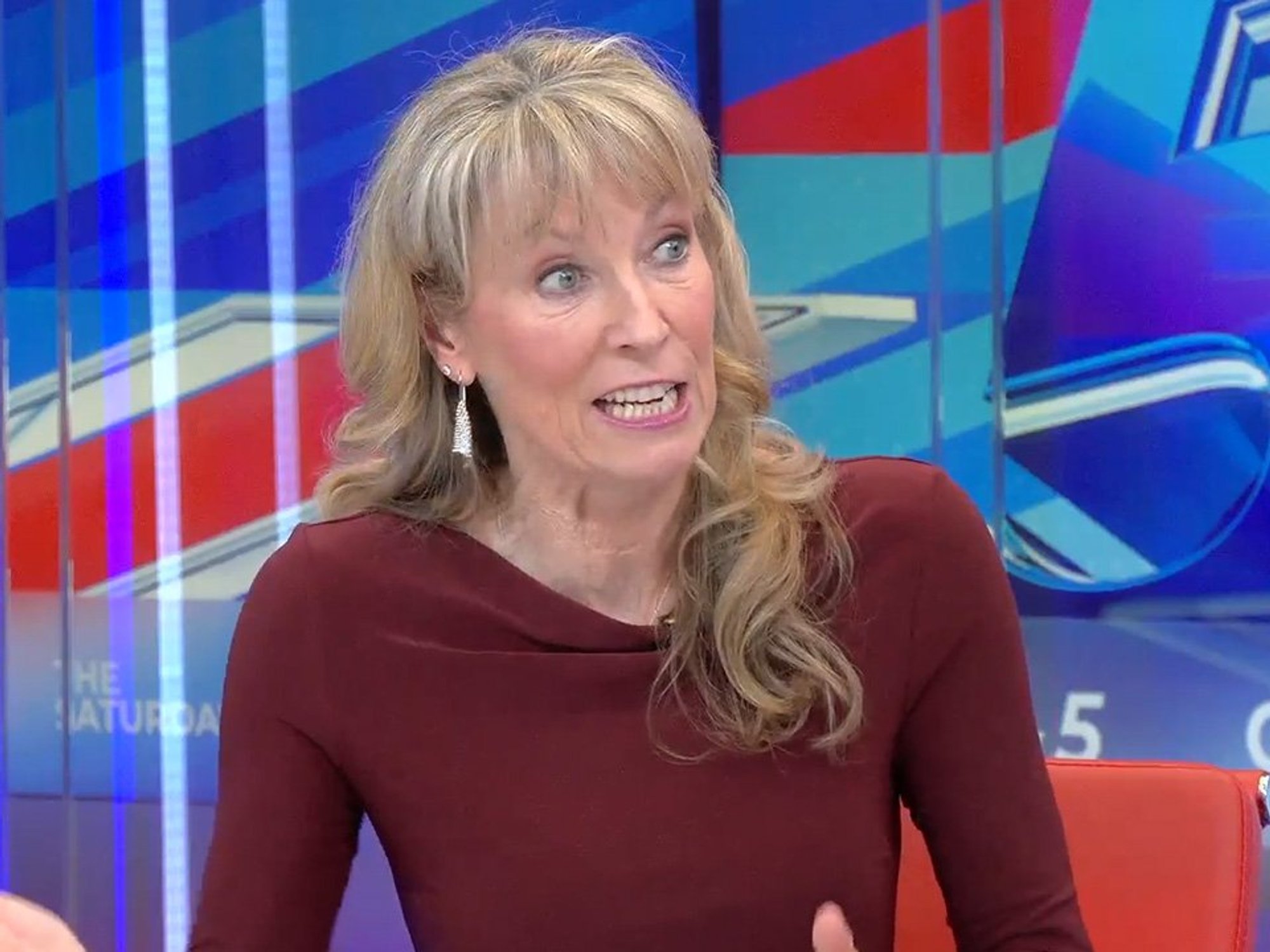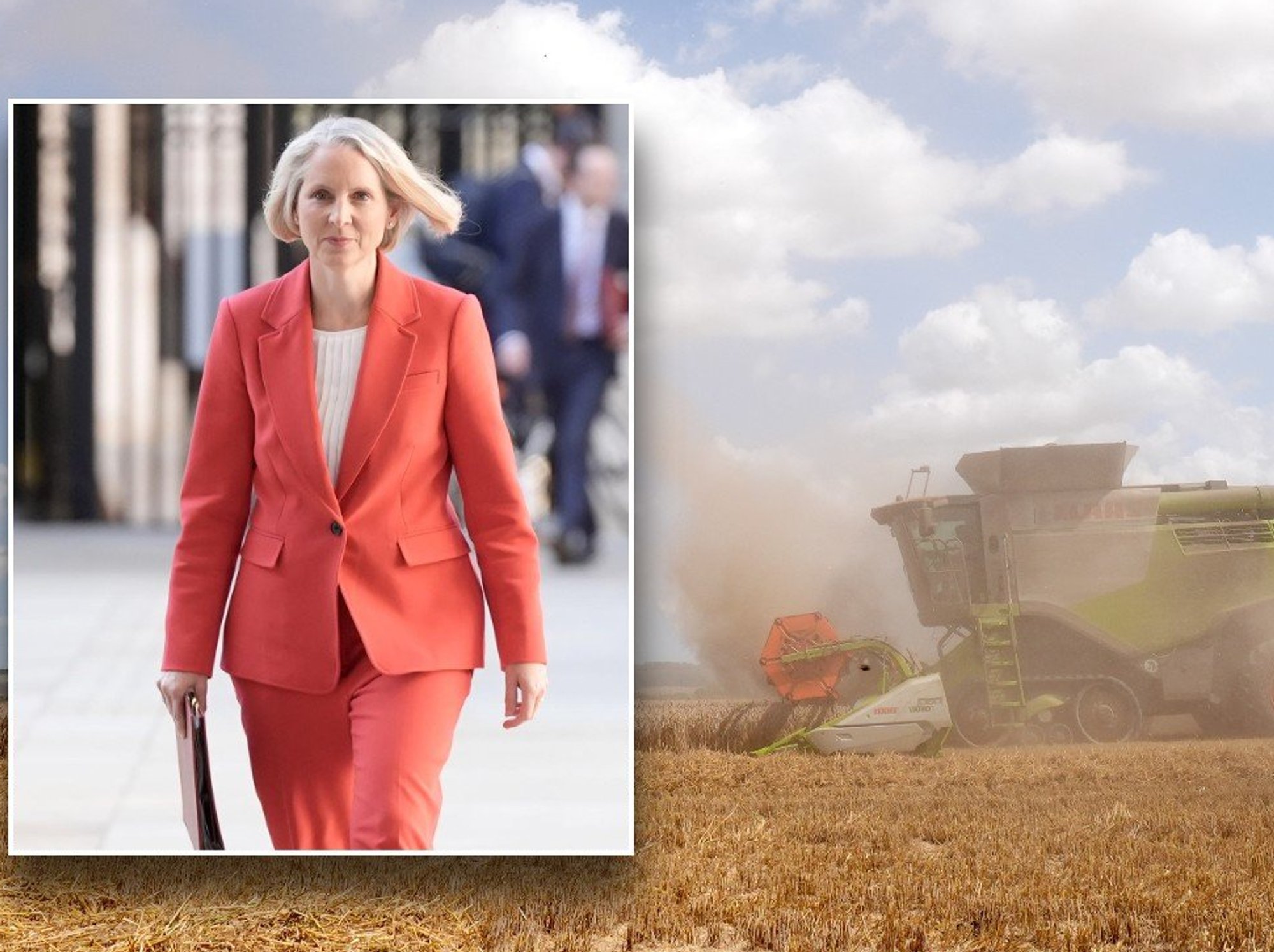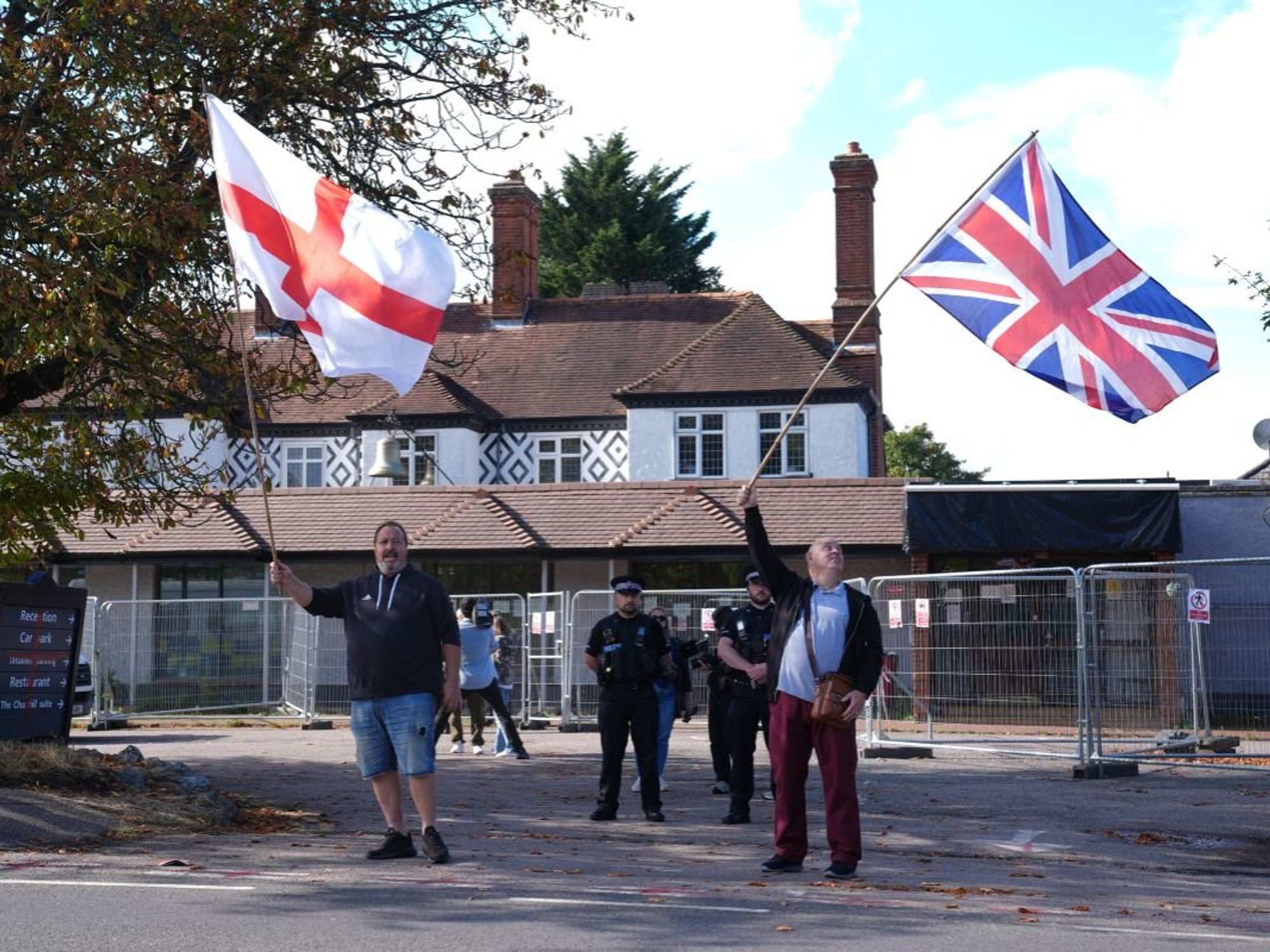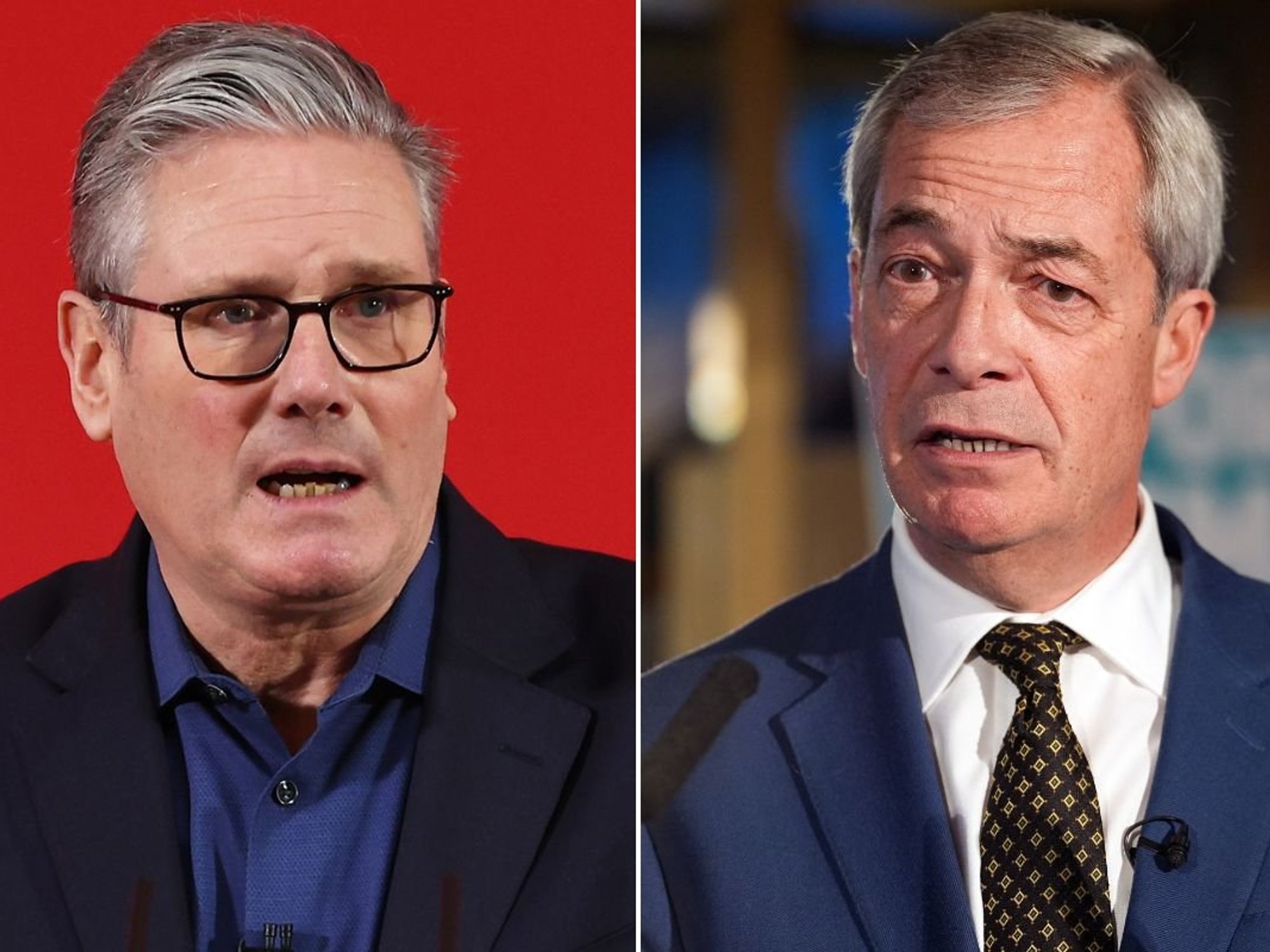The Boriswave reshaped Britain without using a single rubber dinghy. It must be unwound — Colin Brazier
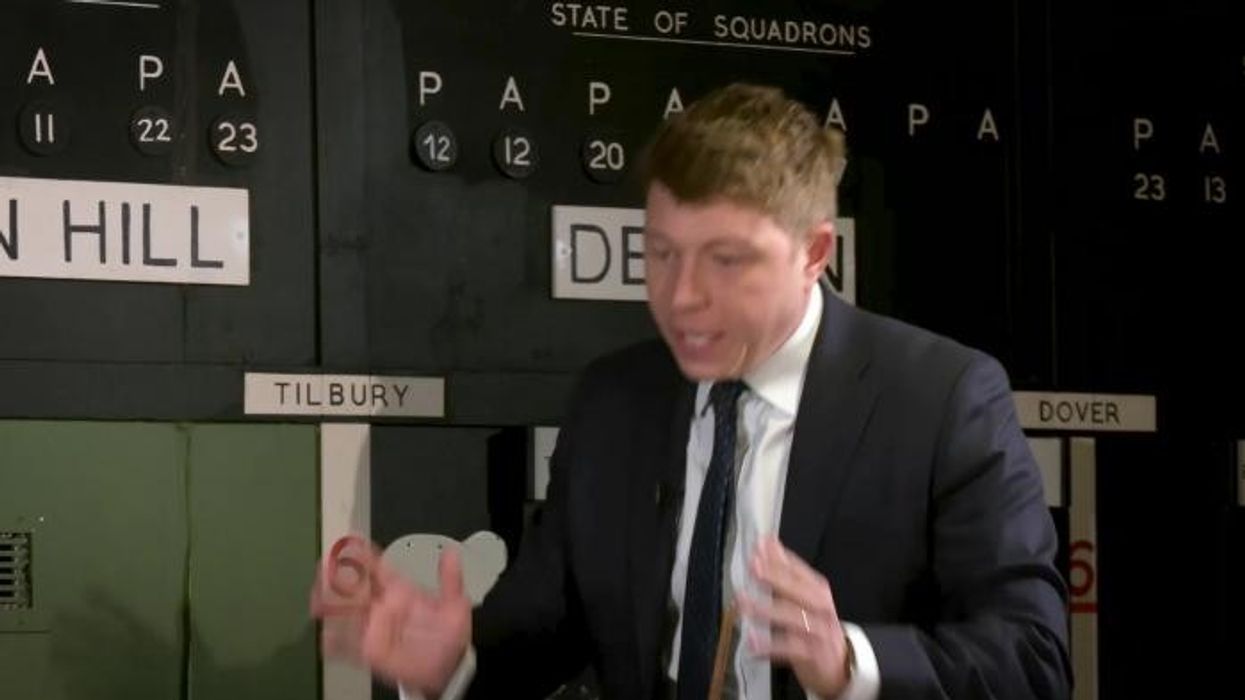
‘It drives me nuts!’ Boris Johnson admits to ‘moments of anger’ over small boat crossings as he suggests solution |
GB
Nobody did more to erode trust in the State’s ability to control the rate of change of diversity than Boris Johnson, writes former broadcaster and columnist Colin Brazier
Don't Miss
Most Read
Trending on GB News
The NHS published a poster this week to encourage parents to vaccinate their children against chickenpox. It was a classic of the genre. It depicted a single mother (Asian), a lesbian couple, a mixed-race gay couple and a mixed-race straight couple.
Four babies, seven adults and not a straight white couple among them, even though they still - just about - represent the most common demographic to beget and bring up children in Britain.
For parts of the British State, there is the way things are, and then there is the way things should be. The chicken-pox poster represented a multicultural ideal, one in which formerly transgressive lifestyle choices and racial difference are offered up, not just as normal, but optimal.
It reminded me of a mural on the end of a building I used to see as a commuter in Brussels, 25 years ago. The mural, like the NHS poster, depicted a constellation of races which bore no relation to the actual ethnic makeup of Belgium at the time.
That said, the Low Countries, like Britain, are now undergoing dizzyingly rapid demographic change. If I were to drive past that mural today, what should it show? Certainly, many more black and brown faces, several of them women wearing face-coverings which were rarely seen in European cities a quarter of a century ago.
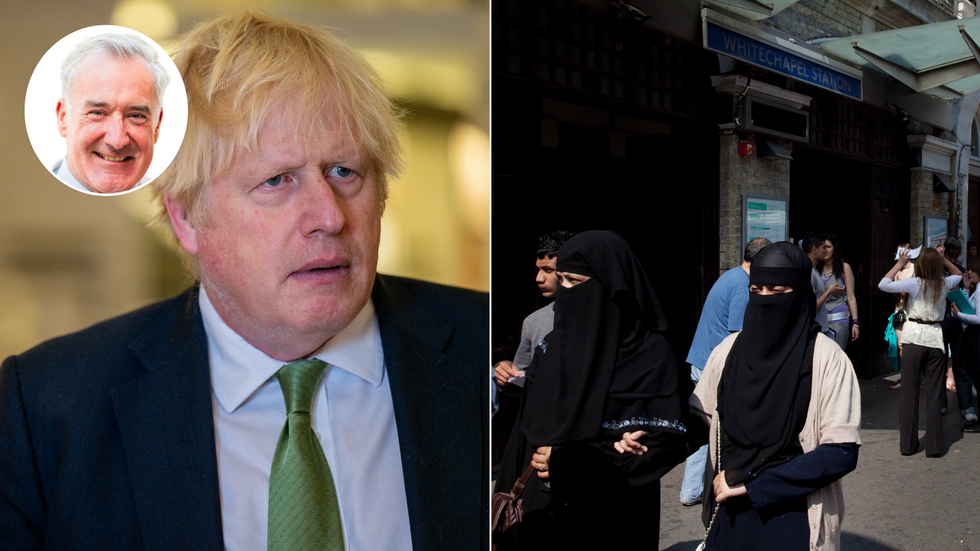 The Boriswave reshaped Britain without using a single rubber dinghy. It must be unwound — Colin Brazier
The Boriswave reshaped Britain without using a single rubber dinghy. It must be unwound — Colin BrazierMy point is this: the State may have in mind a perfect blend of colours and creeds and sexual preferences. It wants to proclaim: you may think you may know your country, but this is who we are!
But demography isn’t like that. It’s not static, but dynamic. Our State may want to fix the current racial settlement in aspic, in posters and murals. Yet the truth is that the State has far less control over the ethnic make-up of Britain than it likes to think.
The public find depictions of Britain our taxpayer-funded bodies yearn to see (with straight white men in particular airbrushed out of official existence) as both banal and bizarre.
Almost comically ridiculous. But the thing, the altogether more serious thing, that really worries them is that the posters and murals and TV campaigns, with their carefully balanced and choreographed racial quotas, are almost always out of date the moment they are made.
And that absence of control, of exponential ethnic change for which democratic assent has neither been sought nor given, is what really bothers folk. And has led our once-stable nation to the brink of civil unrest.
It grieves me to say that nobody did more to erode trust in the State’s ability to control the rate of change of diversity than Boris Johnson.
As a Brexiteer (all those years in Brussels, you see), I am forever thankful for the former Prime Minister’s tactical genius in getting Brexit done.
But I’m afraid he’s also forever damned for his Boriswave, when more than three million people were given visas to enter the UK between 2021 and 2024, with one million arriving in 2023 alone (N.B. when Boris came to power, net migration to the UK was 188,000).
As is often necessary to point out, this was legal - not illegal - migration. No rubber dinghies were used to achieve this unprecedented refashioning of our national ethnic mural.
And the biggest betrayal of all was that, far from being the highly skilled workers needed by our economy and promised by Boris, many of the new arrivals were low-skilled and had limited English-language skills.
They have undercut the wages of indigenous workers, precisely the thing Boris promised Brexit would stop. But worse still, the vast majority were not workers of any kind.
Most were family, dependents or arrived on humanitarian visas. Many others were students, securing what the Tory MP Neil O’Brien has dubbed ‘Deliveroo Visas’; students who arrived at colleges of ill repute, with no intention of finishing bogus courses.
But much of this you already know. So brace yourself for what comes next. Because the Boriswave wasn’t so much an influx as a first instalment. Imagined as a graph, the Boriswave was a spike, but it has a long tail.
Those millions who came to the UK between 2021 and 2024 did so under visas which have the ability to metamorphose into something much more permanent.
After spending five years in the country, visa-holders can apply for Indefinite Leave to Remain (ILR). In the next few months, we will begin to see a massive increase in the number of temporary residents potentially applying for ILR. About 300,000 would be eligible in the next year alone, according to the Centre for Policy Studies.
Over the next four years, an estimated two million will apply to stay, and many will stay for good, with an estimated 600 a day securing permanent residency by 2028.
Those with visas only have limited rights. But once given Leave To Remain, they are automatically booked into the full bed-and-breakfast of British taxpayer-funded rights.
From Jobseeker’s Allowance to council houses, from disability benefits to pension credits. The same rights as you or I, but with none of the back-catalogue of responsibilities. How easy is it to secure Indefinite Leave to Remain? It is usually granted without fuss, unless the individual in question has committed a serious crime.
And the real kicker is that, once their status has been bumped up to ILR, they can open the door to further waves of immigration via even more family reunification.
Labour may not have caused the Boriswave, but it knows how a further massive increase in legal migration could sweep away any chances of re-election.
In May, the government indicated that the suggested qualification period which would need to elapse before a migrant applied for Indefinite Leave to Remain would rise from five to ten years. But since then, and in particular since the angry reaction of Labour backbenchers to Keir Starmer’s ‘Island of Strangers’ speech, there has been foot-dragging.
It seems highly unlikely that those five years will become ten, in time to stop at least an initial influx of tens of thousands of ILR applications. It’s entirely possible that the adoption of a 10-year qualification period won’t happen at all.
It’s been suggested that Labour’s new Home Secretary, Shabana Mahmood, may seek to limit visas to countries which refuse to accept migrant returns.
The likes of Pakistan, India and Nigeria. As a country, we have been incredibly naive about who really benefits from visas. It is very much, for instance, in Pakistan’s interest to send as many of its nationals as possible to the UK, partly in expectation of the millions of pounds in remittances they will send back to Pakistan, but also because the Pakistani diaspora will make it difficult for the UK to act against the Pakistani national interest if push ever does come to shove.
But, like the NHS poster and Belgium rainbow nation mural, so much of our migration policy lives in a world of make-believe, where everybody has the best of intentions in the best of all possible worlds.
More From GB News





